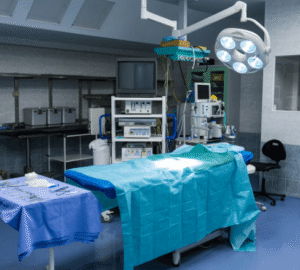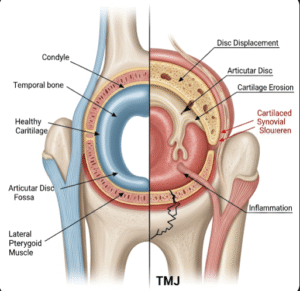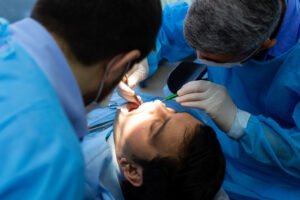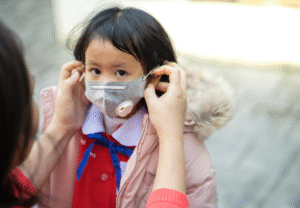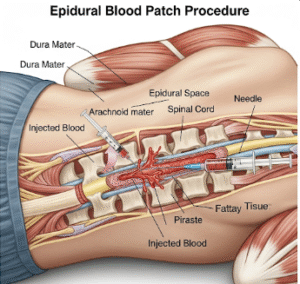Overview
Adenocarcinoma is a type of cancer that begins in glandular (secretory) cells, which are found in various organs throughout the body. It is one of the most common types of cancer, particularly in the lungs, colon, prostate, pancreas, breast, and esophagus. The behavior, prognosis, and treatment of adenocarcinoma vary depending on its location and stage at diagnosis, but early detection can significantly improve outcomes.
What is Adenocarcinoma?
Adenocarcinoma is a form of carcinoma that originates in epithelial cells with glandular properties—cells that produce and release substances such as mucus or digestive juices. These cancers can form in almost any organ or tissue that has glandular cells.
Unlike benign tumors, adenocarcinomas are malignant, meaning they can invade nearby tissues and spread to other parts of the body (metastasize). The most common types include:
- Lung adenocarcinoma
- Colorectal adenocarcinoma
- Pancreatic adenocarcinoma
- Prostate adenocarcinoma
- Breast adenocarcinoma
- Esophageal adenocarcinoma
Symptoms
Symptoms depend on the organ affected but may include:
Lung Adenocarcinoma:
- Persistent cough
- Chest pain
- Shortness of breath
- Coughing up blood
- Unexplained weight loss
Colorectal Adenocarcinoma:
- Changes in bowel habits
- Blood in stool
- Abdominal discomfort
- Fatigue
Pancreatic Adenocarcinoma:
- Abdominal or back pain
- Jaundice
- Weight loss
- Loss of appetite
Prostate Adenocarcinoma:
- Difficulty urinating
- Blood in urine or semen
- Erectile dysfunction
Breast Adenocarcinoma:
- Lump in the breast
- Nipple discharge
- Skin dimpling or changes
Esophageal Adenocarcinoma:
- Difficulty swallowing
- Chest pain
- Heartburn
Causes
Adenocarcinoma develops due to mutations in the DNA of glandular cells that lead to uncontrolled cell growth. Known causes and contributing factors include:
- Tobacco use
- Exposure to carcinogens (e.g., asbestos, radon)
- Chronic inflammation (e.g., Barrett’s esophagus)
- Hormonal influences (especially in breast and prostate cancers)
- Dietary factors
- Genetic mutations or hereditary syndromes
Risk Factors
Risk factors vary by organ system but generally include:
- Smoking (major risk for lung, pancreatic, and esophageal cancers)
- Family history of cancer
- Age over 50
- Obesity
- Poor diet
- Chronic conditions like GERD, ulcerative colitis, or hepatitis
- Alcohol use
- Infections (e.g., Helicobacter pylori for stomach cancer, HPV for cervical)
Complications
If left untreated, adenocarcinomas can lead to:
- Metastasis to distant organs (liver, bones, brain, etc.)
- Organ failure
- Severe bleeding or obstruction (especially in the GI tract)
- Weight loss and malnutrition
- Pain and reduced quality of life
- Side effects from cancer treatments
Prevention
While not all adenocarcinomas are preventable, the following strategies may reduce risk:
- Avoid smoking and secondhand smoke
- Maintain a healthy weight and balanced diet
- Limit alcohol consumption
- Regular physical activity
- Routine screening (e.g., colonoscopy, mammograms, PSA tests)
- Manage chronic medical conditions
- Vaccinations (e.g., HPV vaccine)
Treatment Options Korea
1. Surgical Resection
- Primary treatment for localized adenocarcinomas
- Curative in early-stage cancers
- Performed by organ-specific surgeons (e.g., thoracic, colorectal, hepatobiliary)
- Robotic or laparoscopic surgery widely available in major Korean centers
2. Chemotherapy
- Adjuvant (after surgery) or neoadjuvant (before surgery) use depending on tumor site and stage
- Common regimens:
- FOLFOX, FOLFIRI for colorectal cancer
- Platinum-based chemo for lung and gastric cancers
- Available through oncology departments in all general and university hospitals
3. Targeted Therapy
- Based on biomarker testing (e.g., EGFR, HER2, KRAS, ALK)
- Common agents:
- Trastuzumab for HER2+ gastric/breast cancer
- EGFR/ALK inhibitors for lung adenocarcinoma
- Precision medicine programs available in top-tier Korean cancer centers
4. Radiation Therapy
- Used for local control, palliative treatment, or in combination with chemo
- Technologies:
- IMRT, proton therapy, and stereotactic body radiotherapy (SBRT)
- Delivered at specialized cancer hospitals and radiotherapy units
5. Immunotherapy
- Used in cancers with PD-L1 expression, MSI-high, or high tumor mutational burden
- Agents: Pembrolizumab, nivolumab, etc.
- Especially effective in lung, gastric, and colorectal adenocarcinomas
6. Palliative and Supportive Care
- For advanced or metastatic cases where curative treatment isn’t possible
- Focus on pain management, nutritional support, and symptom relief
- Hospice and home-care services are available through Korean hospitals
7. Surveillance and Follow-Up
- Regular imaging (CT/MRI/PET), tumor markers, and clinical assessments
- Lifestyle guidance and cancer survivorship support





